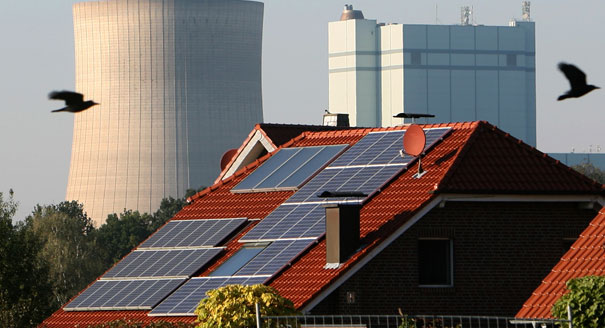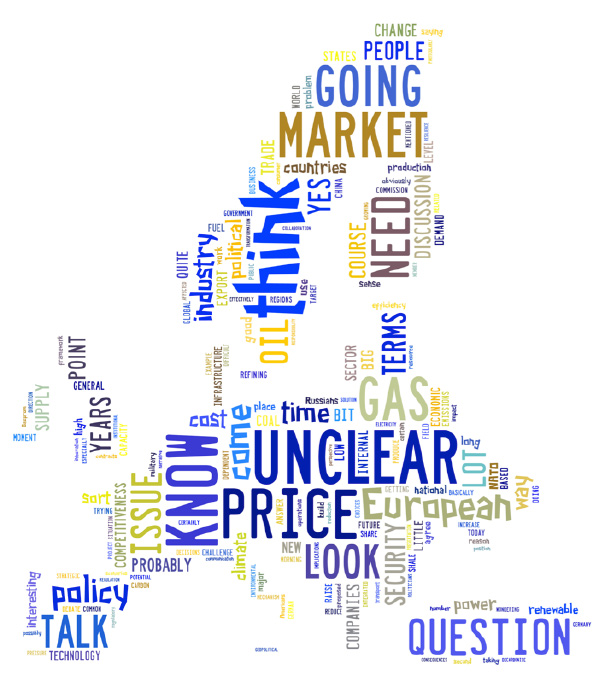Registration
You will receive an email confirming your registration.
The EU could serve as a bridge to a more balanced approach to future energy supply and demand policies, infrastructure investments, and market outcomes. Alternatively, a lack of awareness or understanding of global trends could see the continent lose relevance and competitiveness in the decades ahead. With Europe at a crossroads, the EU Energy Exchange will bring together a small group of individuals from government to NGOs, and from industry to academia to explore the risks and opportunities hidden behind the future evolution of policies and markets.
Carnegie EU Energy Exchange Word Cloud
Word cloud above created by Carnegie from the EU Energy Exchange reveals the relative prominence of various topics and concepts raised. The discussion focused more intensely on areas beyond the control of EU policymakers and citizens—energy markets and prices —and de-emphasized inputs that they can manage—infrastructure, production, and collaboration. Topics that had recently been hot, such as climate change, or would heat up in the months ahead, such as shale resources, were surprising undercurrents. There was little hint of the changes that lay ahead with Russia. Global aspects of energy were understated. Individual countries’ and companies’ role shaping energy dynamics took a back seat to the pan-European perspective. This outlook was likely shaped by the event venue in Brussels, despite significant input from stakeholders in EU member states.



